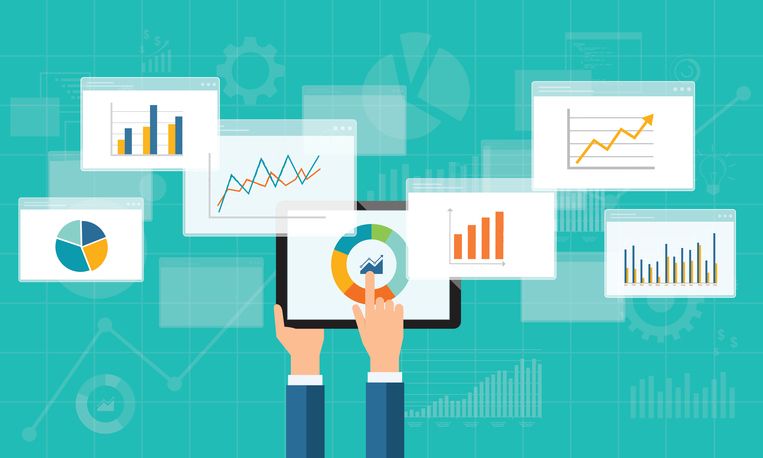Big data analytics has transformed how we analyze, manage and utilize data across different industries. Data analytics has brought significant changes in the healthcare sector. It can reduce treatment costs, provide meaningful insights into patient data, identify conditions that affect the patients, and suggest ways to improve the quality of life.
Healthcare big data analysts blend real-time data with historical data to estimate trends, uncover valuable insights and enhance growth. According to reports, the world healthcare analytics market is estimated to reach $96.9. Billion by 2023 with a compound annual growth rate of 15.3%. Numerous factors, such as the rise of chronic diseases and the requirement for laboratory automation and efficiency, have led to an increase in the adoption of big data in the healthcare sector.
Healthcare organizations are also planning to reduce expenditure on staff deployment, poor stock management, and patient care by utilizing big data analytics.
Let us see how big data analytics can assist medical professionals and institutions in reducing expenditure and improving the quality of healthcare services.
Ways of Minimizing Cost in The Healthcare Sector By Using Data Analytics
Appropriately implementing data analytics and visualization can improve patient access to various services while reducing costs, generating more revenue, and enhancing patient satisfaction. Let us see how big data analytics tools and solutions can be utilized to reduce costs in the healthcare sector.
Electronic Health Records (EHRs)
One of the significant benefits of big data analytics in healthcare is digitizing medical records, which can lead to cost savings. EHRs produce massive data from the wide range of clinical information they have, and the data gathered in EHRs consists of administrative and diagnostic patient information. This information is updated in real-time for each encounter, and EHR supplies information on demographics, procedures, fees, and duration of stay. Moreover, EHRs can activate alerts and reminders for diagnostics, thereby improving healthcare quality.
They can also improve performance by minimizing the scope or errors, streamlining regular tasks, and speeding up data entry and access. This way, the cost of healthcare can be significantly reduced. Therefore, a shared platform of digitized patient records can assist healthcare institutions, and hospitals save money.
Predicts Operation Room Demands
It is costly to build, operate, and staff operating rooms. Therefore, every healthcare institution optimizes the operating room without jeopardizing the patient’s health. To establish this objective, many hospitals use data analytics to comprehend the connection between various operating room variables that ravage effective scheduling. These variables involve operating hours, surgeon availability, and equipment availability and functionality.
It is tough to frame a surgical schedule after considering so many aspects. Big data analysts can help to manage the operating room functions. Healthcare institutions now have plenty of patients, staff, and facilities. Therefore, the ideal solution is to mine the appropriate data, utilize predictive modeling to align the proper support and human resources with the appropriate operating rooms, and study operating room application trends.
Wards Off 30-day Hospital Readmissions
Unwanted readmissions are highly prevalent in the US-based healthcare industry, and they also lead to an unnecessary expense on the healthcare institutions with limited resources. Minimizing readmission can reduce costs for hospitals. Data analytics can be applied to recognize patients with particular symptoms and diseases that result in readmission. It assists healthcare professionals in taking additional precautions to prevent readmission within 30 days after discharge.
Analytics tools can also be utilized to build a heat map for every patient who has not visited the hospital for the last 30 days. Doctors can utilize this easily understandable visual representation to determine when precisely in the 30-day window, the patient is at a vulnerable state. It assists them in planning for the future.
Optimizes Staffing
Many healthcare facilities do not consider the critical factors before scheduling appointments which can result in a shortage of staff that hampers patient care. Accurate staffing is essential as half of a hospital’s expenses are labor costs. Big data analysts can help managers and the administration improve staffing at least 30 days in advance. Data analytics uses intelligence to examine historical staffing numbers, seasonal infections, local weather trends, holidays, and more for each institution and predicts the staffing requirements. This can facilitate efficient and cost-effective management of shifts.
Boosts Supply Chain Cost Management
For every business, hospitals depend on the supply chain for effective operations. If there is a breach in the chain, the treatment and quality of care suffer, and the healthcare providers lose money. Data analytics support efficiency and track supply chain metrics, reducing expenditure. You can also automate purchase orders, requisitions, invoices, and other functions to eliminate documentation mistakes.
Eliminates Frauds and Improves Security
Hospitals are also victims of data breaches, cyberattacks, and fraud claims. These cyber crimes can be expensive for hospitals and result in a loss of revenue, amounting to nearly $3 million on an average. To counter data breaches, hospitals are applying data analytics to determine suspicious online behavior and changes in patterns in network traffic. Hospitals can also track fraud payments through data analytics.
Minimizes Medical Errors
Medical errors might arise from diagnostic, surgical, and medication failures and lead to a hospital revenue loss. Mistakes might also be caused due to insufficient data or staff negligence. Big data analysts aid in minimizing these errors by inspecting the patient’s medical records and the prescribed treatments and eliminating anything irregular.
Data Analytics significantly transforms the healthcare industry by offering improved healthcare and minimizing expenses for healthcare institutions and patients. It is deemed to have a significant impact in the upcoming years. Big data analytics would be increasingly utilized in hospitals to predict future situations for making well-informed decisions.

